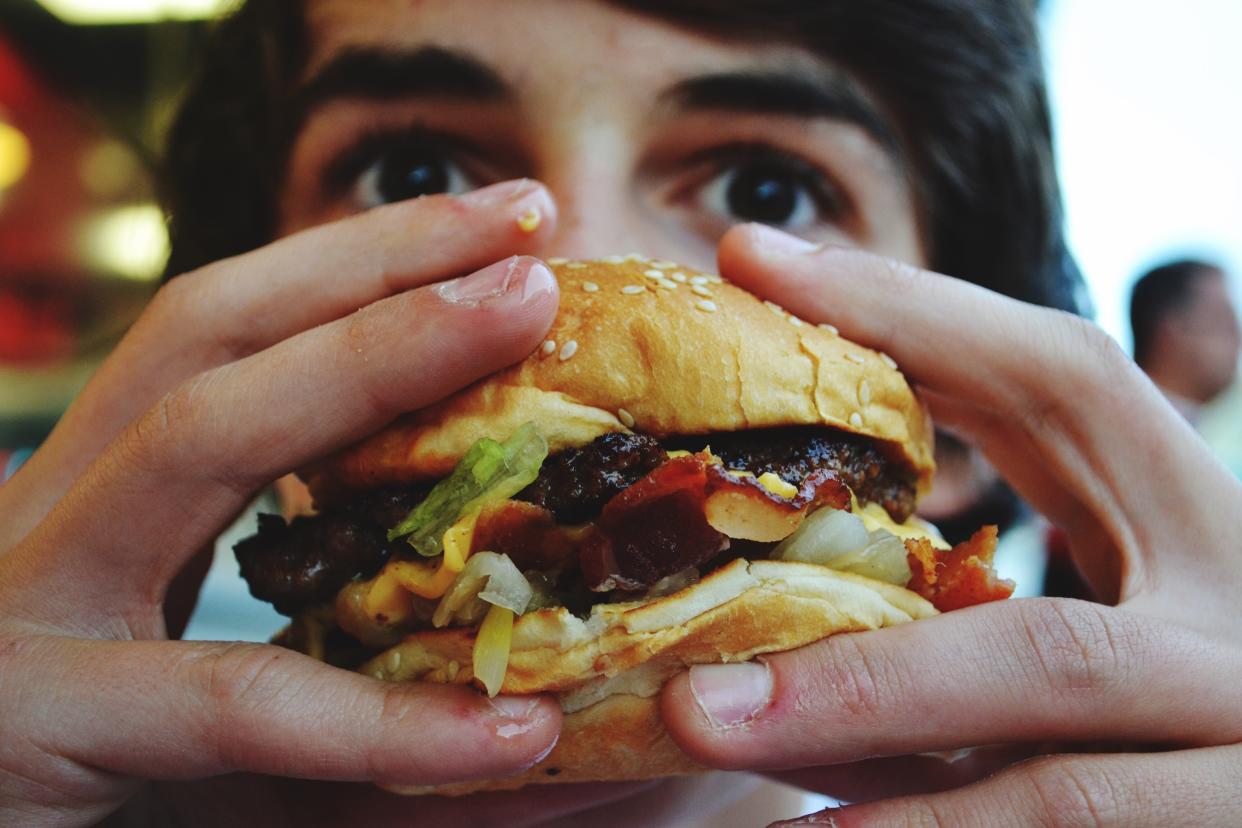3 nutritionists (who are also moms) share how they get their teens to eat healthier

Getting most teens to eat healthy can be a struggle under the best of circumstances. Sure, they know what they’re supposed to do when it comes to fueling up right, most teens just don’t.
It’s not just you who has to deal with this: Nutritionists have trouble getting their teens to eat well too. And surprisingly, they don’t stress over it. “It’s important to understand that they’re not going to eat perfectly and you shouldn’t expect them to,” Karen Ansel, R.D.N., mom to a teenager and author of “Healthy in a Hurry,” tells Yahoo Lifestyle. “It doesn’t mean you should let them eat whatever they want, but good habits take time to build, like years.”
It can be tricky to get teens to eat well because they’re “developmentally becoming independent and challenging authority,” says Sonya Angelone, R.D., a mom of a teenage son and spokeswoman for the Academy of Nutrition and Dietetics. “One way they can feel more autonomous is by choosing what to eat and what not to eat,” she adds.
In general, teens “prioritize convenience, taste and affordability,” which usually means they like “fast food, pizza, chips and other inexpensive goodies you can find at drugstores and convenience stores,” explains Samantha Cassetty, M.S., R.D., a mom of a teen son and a nutrition and wellness expert.
That doesn’t mean you need to just let your teen eat terribly, though. Below are the tricks nutritionists have found work well with their teens.
1. Appeal to their vanity
“At this point, I accept that he visits fast food restaurants and pizza shops and probably overdoes it on sweets. This is part of growing up and learning how to take care of himself,” Cassetty says of her son. But she uses this to help with teaching moments. “We talk about what he might notice when he’s not eating well compared to when he is. For example, his skin might break out or he might get a stomach ache,” she says. “This isn’t judgmental — it’s a fact-finding mission to help him link his eating choices to how he feels so he can ultimately use this info to make a different choice if he wants to.”
2. Have someone else talk to them about nutrition
“If you become overly involved, it’s likely to backfire,” Ansel says. She’s found that teens tend to do better when they hear information about eating well from someone outside the family. “When my kids went to the doctor, they tended to latch onto that information more than when I said it,” she says. “When I said it, there was a lot of eye-rolling.”

3. Load them up on veggies when you can
Teens are busy and it’s not always easy to have them eat at home, but Cassetty recommends doing your best to have healthy family meals when possible. She says her family eats meals together on “most nights” and she makes it a point to have her son eat “at least” two cups of vegetables at those dinners. “That keeps his veggie-eating consistent, which is a top healthy habit,” she says. “Plus, I know veggies are sorely lacking in his other meals so I use our family dinners as an opportunity to boost his intake.”
4. Add some flavor boosters
You’re probably not going to get your teenager to love vegetables if you serve them steamed. That’s why Cassetty recommends adding “flavor boosters” like toasted nuts, a sprinkle of cheese, herbs and seasonings and salad dressing to help kick things up a notch.
5. Focus on short-term benefits
“They’re more likely to care about immediate results,” says Ansel. “If you try to tell them that eating well will build strong bones, they won’t relate to that.” Instead, she suggests talking to your child about how food can help with energy levels. “Talk about the fact that, if they’re exhausted all the time, healthy eating may help them feel better and have more energy,” she says. If your child is an athlete, Angelone recommends making a point to talk to them about how what they eat can impact how well they do in sports. Having them understand the value of good nutrition for sports performance is crucial, she says.

6. Keep good stuff around
“Have delicious, fun and healthy foods stocked in the kitchen,” says Angelone . That includes, hummus, guacamole, salsa, vegetables, whole grain crackers and dips, fruit salad or fruit kabobs, cereal and milk topped with berries, yogurt and sliced fruit, trail mix, soups, chili and whole grain cornbread.
7. Take them out to eat
Part of having kids learn to eat better is getting them to try new things. “Some of the best experiences I had with my kids trying new food was in a restaurant,” Ansel explains. “They’re happy to go out, they’ll experience things in a new and different way, and the food will probably taste better too.” Healthy restaurants are trendy now, Ansel points out, so you could take your child to a place that specializes in good, nutritious food and they likely won’t even know it. “You don’t even have to mention that the food is healthy,” she says.
8. Give them some control
According to Angelone, “build your own” dinners, like taco, pizza, or even salad nights can be a fun way to let your child have some autonomy over what they eat, while giving them healthy foods.
Overall, nutritionists say you should just do your best. “Don’t stress too much about your teen’s eating habits,” says Cassetty. “Hopefully you’re laying down a good foundation for when your teen becomes more independent.” Ansel agrees. “If you keep putting the right foods in front of them, eventually they’ll catch on.”
